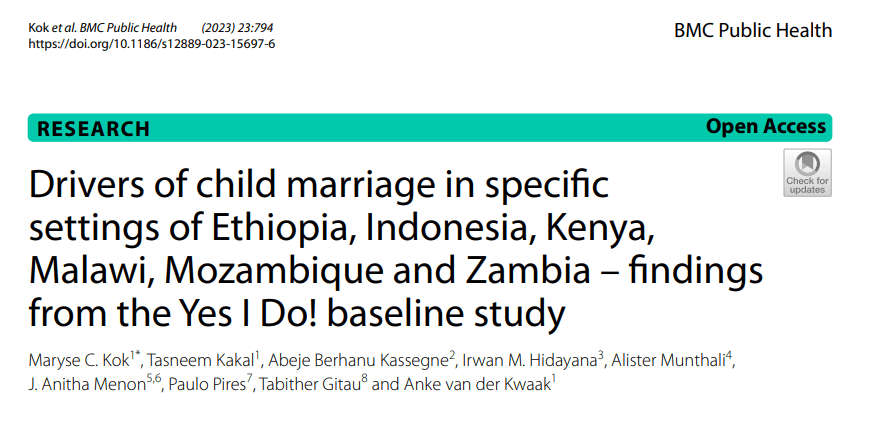Child marriage persists in many countries and has severe impacts on the health, education, economic and social status of girls. Child marriage has many interlinked causes. This study aimed to explore the drivers of child marriage in specific contexts in Ethiopia, Indonesia, Kenya, Malawi, Mozambique and Zambia.
The study combined a household survey among youth (15-24 years) with focus group discussions and interviews conducted with youth (15-24 years) and parents. A variety of community stakeholders were interviewed as well. Logistic regression was done to explore associations between individual and family-level characteristics of young women and the occurrence of child marriage. Transcripts were analysed using an inductive approach. Narratives on the main drivers of child marriage across study contexts were written and inspired by the theory of the normative spectrum.
Multiple intersecting drivers, which were present in different degrees in each country setting, influenced the occurrence of child marriage. We found that child marriage is a manifestation of social norms, particularly related to girls’ sexuality, which intersects with other factors at individual, social, material, and institutional level – most prominently poverty or economic constraints. Child marriage was, in some cases, a result of girls’ agentic choices. Efforts to prevent child marriage need to take these realities of girls and their families into account.

